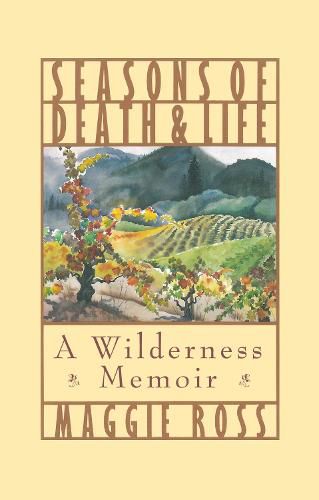Readings Newsletter
Become a Readings Member to make your shopping experience even easier.
Sign in or sign up for free!
You’re not far away from qualifying for FREE standard shipping within Australia
You’ve qualified for FREE standard shipping within Australia
The cart is loading…






This title is printed to order. This book may have been self-published. If so, we cannot guarantee the quality of the content. In the main most books will have gone through the editing process however some may not. We therefore suggest that you be aware of this before ordering this book. If in doubt check either the author or publisher’s details as we are unable to accept any returns unless they are faulty. Please contact us if you have any questions.
Maggie Ross’s superb memoir of her sojourn in the wilderness is filled with living and dying, joy and pain, healing and hurting, and, most important, the love that indwells and is revealed in the most unexpected places. Weary and wounded, yearning for deep solitude, Ross takes a job as a caretaker in a place of luminous–sometimes terrifying–beauty on the northwest coast of the United States. Here she meets a local woman called Muskrat who becomes her companion and teacher. From a harsh and unforgiving life, Muskrat has distilled impressive wisdom and an extraordinary, unselfconscious spirituality. Living out a generosity and loving-kindness born of suffering, she helps Ross find healing from damage inflicted by the abuse of power–damage that culminates in a life-threatening illness. Muskrat is not her only teacher. There are the dogs, Pomo and Kelly, and the bird, Raven, whose joyous play, tender and violent affection, mischief, and fidelity reveal a new vision of life during a long, slow convalescence. Ross receives healing, too, from the land, from the work necessary to its seasons, from the wildlife, which appears strangely unafraid, and from the small and large kindnesses of her rural neighbors. Like Henry David Thoreau and Annie Dillard, she describes landscapes of rare beauty that reveal the true meaning of sacrament in the smallest wood orchid and the vast wildness of the sea… . the last flimsy boundaries between sacred and secular melted away. We emerge from this near-mythic tale–from its frustrations, its tragedies and epiphanies–illuminated, refreshed, with a new vital perception of the sanctity of our common humanity and of wilderness as a context for the transfiguration of pain.
$9.00 standard shipping within Australia
FREE standard shipping within Australia for orders over $100.00
Express & International shipping calculated at checkout
This title is printed to order. This book may have been self-published. If so, we cannot guarantee the quality of the content. In the main most books will have gone through the editing process however some may not. We therefore suggest that you be aware of this before ordering this book. If in doubt check either the author or publisher’s details as we are unable to accept any returns unless they are faulty. Please contact us if you have any questions.
Maggie Ross’s superb memoir of her sojourn in the wilderness is filled with living and dying, joy and pain, healing and hurting, and, most important, the love that indwells and is revealed in the most unexpected places. Weary and wounded, yearning for deep solitude, Ross takes a job as a caretaker in a place of luminous–sometimes terrifying–beauty on the northwest coast of the United States. Here she meets a local woman called Muskrat who becomes her companion and teacher. From a harsh and unforgiving life, Muskrat has distilled impressive wisdom and an extraordinary, unselfconscious spirituality. Living out a generosity and loving-kindness born of suffering, she helps Ross find healing from damage inflicted by the abuse of power–damage that culminates in a life-threatening illness. Muskrat is not her only teacher. There are the dogs, Pomo and Kelly, and the bird, Raven, whose joyous play, tender and violent affection, mischief, and fidelity reveal a new vision of life during a long, slow convalescence. Ross receives healing, too, from the land, from the work necessary to its seasons, from the wildlife, which appears strangely unafraid, and from the small and large kindnesses of her rural neighbors. Like Henry David Thoreau and Annie Dillard, she describes landscapes of rare beauty that reveal the true meaning of sacrament in the smallest wood orchid and the vast wildness of the sea… . the last flimsy boundaries between sacred and secular melted away. We emerge from this near-mythic tale–from its frustrations, its tragedies and epiphanies–illuminated, refreshed, with a new vital perception of the sanctity of our common humanity and of wilderness as a context for the transfiguration of pain.